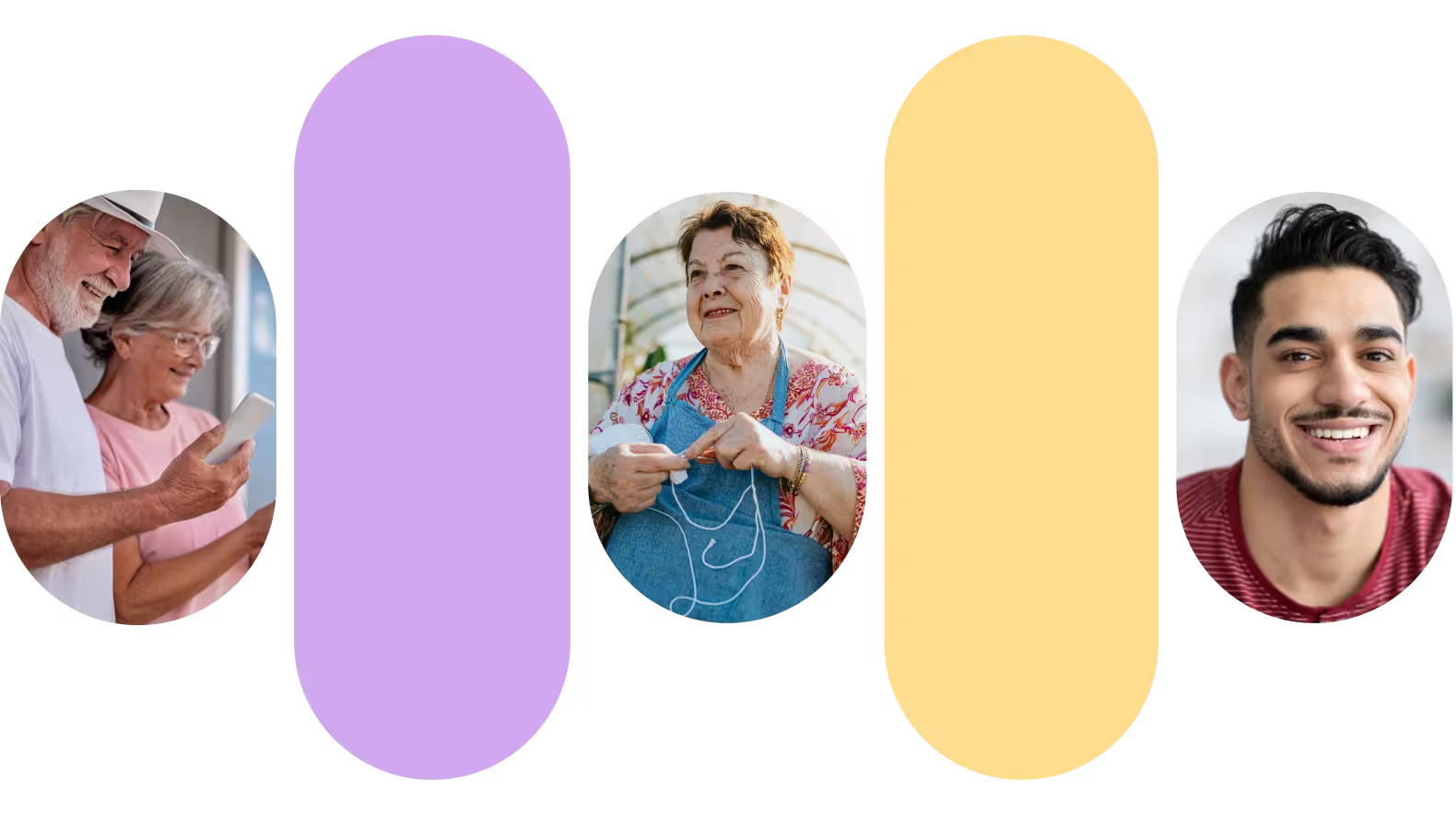7 Reasons to Embrace Your Hearing Diagnosis with Confidence
Whether you are experiencing hearing loss or know someone who is, there are many reasons to approach it positively. Click here and read all!

Understanding Hearing Loss
Hearing loss is a common condition affecting millions worldwide – 30 million in the United States alone. Yet, it is often misunderstood.
According to data from the National Institute on Deafness, only about 20% of all people with hearing concerns get help for their condition. It takes about seven years on average for individuals to pursue intervention once they start having hearing difficulty. What causes this delay?
The feelings of embarrassment or uncertainty can prevent you from seeking help and support and hold you back. Hearing-aid technology, design, and fit have evolved. Devices have gotten smaller and sleeker, and there are many options to fit your needs and lifestyle.
Assistive technology can be a neutral tool to help empower you and many others diagnosed with hearing loss. Using technology is not a weakness but simply a part of the human experience that is manageable with the right tools and support.
Whether you are deaf or hard of hearing, what are some logical reasons to embrace your diagnosis? Here are seven reasons to empower you:
01. Hearing loss is Common
Hearing loss is not a rare, but rather a part of physical health. 1 in 8 people in the United States aged 12 years or older has hearing loss in both ears, based on standard hearing examinations.

02. Assistive Technology are Tools
With the right tools, you can enjoy life and participate in society. Millions of others are also in the same situation – wear them confidently, and if you ever catch someone else wearing them, it is like being a part of a secret club!

03. You are Unique
People with hearing loss have unique talents, personalities, and life experiences. In addition, your diagnosis will change how you see the world around you and offer you insight into the human experience. You will have experience to gain that others can benefit from.

04. Communication Can Be Creative
Having a hearing loss diagnosis means thinking outside of the box with communication. From sign language to assistive listening devices to Nagish Live Transcribe, a broad range of options and communication tools are available.

05. Hearing Loss Impacts All
Hearing loss can affect anyone, regardless of age, gender, ethnicity, or socioeconomic status. The onset can be due to various factors, including genetics, age, noise exposure, and certain medical conditions. It is not always preventable and you are not alone.

06. A New Community
Because hearing loss impacts so many people, they seek like minded support in groups. There are social groups for the deaf and hard of hearing all over the world. Whether in person or on social media, you can find people going through the same experiences and combat isolation. Seeking social support will lead to new and richer communities.
07. Embracing Hearing Diversity Benefits Everyone
Accepting deaf and hard of hearing people in mainstream society, has a positive net benefit. People are encouraged to seek help for their hearing loss earlier, which can promote healthier aging. Normalizing hearing loss benefits those with hearing loss and their families, friends, and communities by providing more options and better technology for communication and hearing enhancement.

Looking Into The Future
When more people are willing to use hearing aids and other hearing technologies, it creates a larger market for these products, leading to increased innovation and improved accessibility.
There’s ongoing innovation and development happening not just in hearing aids and diagnostic tools but also in AI-powered technology to support communication and daily living.
We are excited to witness and lead the advances and innovations in the field of connectivity, which is driving new technology, including hearing aids and opportunities for accessible communication.














